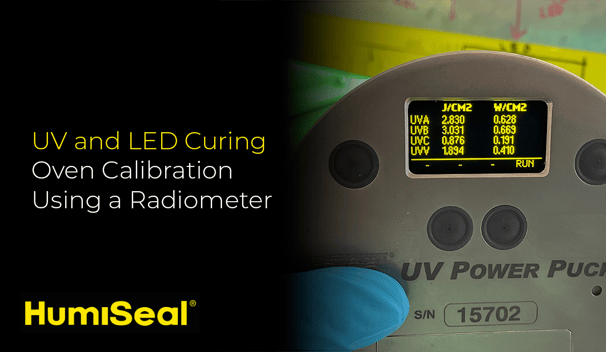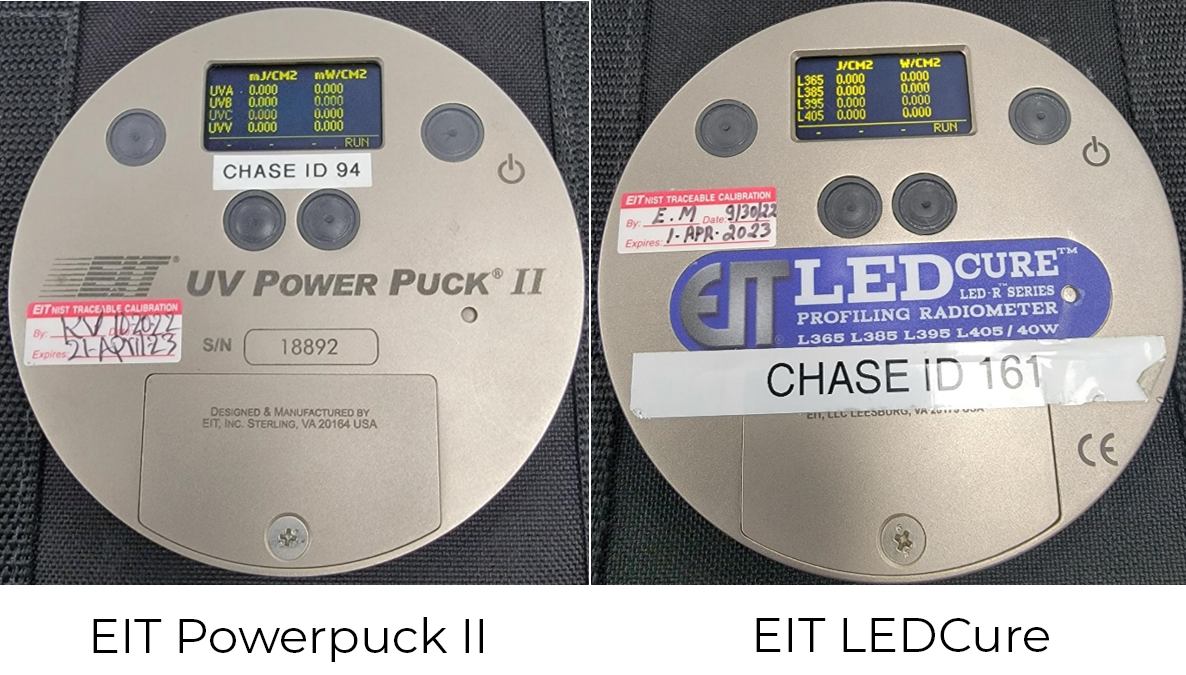
It's 2023; the electronics industry is embracing UV-curable coatings. There are many valid reasons for this, from the desire to reduce/eliminate VOCs, difficulty navigating ever-changing and complex environmental regulations, increasing energy and labor costs as well as the sheer volumes modern assembly lines must increasingly meet.
So you’ve decided to jump with both feet into the exciting world of UV and LED conformal coatings, adhesives, and GELS. Congratulations! You've made a great decision; now let’s look at the tools you will need to set up, optimize, and maintain your process.
In short, you will need to use a radiometer, but what is a radiometer and why do you need one? A radiometer measures the radiant flux (power) of electromagnetic radiation. That dictionary definition doesn't clear things up all that well, so let's break it down further.
UV and LED cure systems emit electromagnetic energy across either:
- Broad wavelength spectrums (as in the case of microwave and arc UV systems) or
- Single wavelengths (for the LED variety)
UV Curing Oven Calibration using a Radiometer
Radiometers--when matched to the corresponding type of UV process being used--allow process engineers and technicians to correctly set up, optimize, and maintain the UV/LED curing process.
Choosing the Correct Radiometer
The first step in choosing the correct radiometer for your process is to identify the type of UV or LED cure system you are using. Let’s start with full-spectrum microwave or arc UV ovens. These systems can be equipped with a variety of doped light sources depending on the specific materials being processed.
UV Curable Conformal Coatings
HumiSeal UV conformal coatings, adhesives, and GELS are generally formulated to properly absorb and react to the spectral distribution emitted from mercury (“H”) doped bulbs. The spectral distribution emitted from a mercury (“H”) bulb is between 200nm to 600nm. Therefore, the appropriate radiometer for use, in this case, will be the type that reads across the four UV bands of UVA, UVB, UVC and UVV.
EIT’s Powerpuck II is an excellent example of a suitable radiometer for these types of systems as they are calibrated to mercury-doped light sources and provide the user with detailed data in each of the four UV bands.
Related Article: Managing UV Curable Conformal Coatings
LED Curable Conformal Coatings
HumiSeal LED curable conformal coatings, adhesives, and GELS typically absorb and react in one or more of the following single wavelengths: 365nm, 385nm, or 395nm. LED radiometers are commercially available in either the single wavelength (Ex. 365nm) variety or in the case of EITs LEDCure Four Band Profiler, 365nm, 385nm, 395nm and 405nm wavelengths.
There are many radiometer brands on the market that are fit for purpose, just be sure to match the correct type to the process you are running.

Measuring UV or LED Conformal Coating Ovens with Radiometers
Good news: in a few short actions, you’ll have your UV or LED oven profiled, set up, and optimized in no time at all. Before proceeding, be sure to wear the appropriate PPE (Person Protective Equipment). This usually consists of UV/LED-rated safety glasses (ANSI Z87.1) and gloves to protect the eyes and skin from UV radiation which can be harmful to humans. Please refer to your local SH&E professional for additional information. Remember, Safety First!
How Conveyor Speed Impacts Time to Cure UV Conformal Coatings
- Turn on your UV / LED cure system.
- Note – some systems require a brief warmup period to ensure the UV/LED output is stable. Be sure to follow your oven manufacturer’s instructions for warming up the system.
- Turn on your radiometer and push run to start collecting data.
- Note – the exact start procedure may vary by model, see the owner’s manual to ensure proper operation.
- Place the radiometer on the oven conveyor or belt.
- Ensure the optical window is facing the UV or LED light in the same manner your assemblies would as they travel through the oven.
- After leaving the UV or LED oven tunnel push the start button again to stop collecting data.
- Document the displayed data
The above steps will provide the basis for the next set of actions that’ll have your UV / LED system optimized for perfect processing of your HumiSeal UV coatings, adhesives, and GELs.
Radiometers are just one of many tools required from proper conformal coating application. Check out our blog on viscosity measurement devices for other relevant tips and instructions. This is the first of two blogs discussing calibration and radiometers. Interested in reading part 2? Stay informed by subscribing to our blog! If you have any questions about conformal coatings, our team would be happy to chat. Contact us here:









